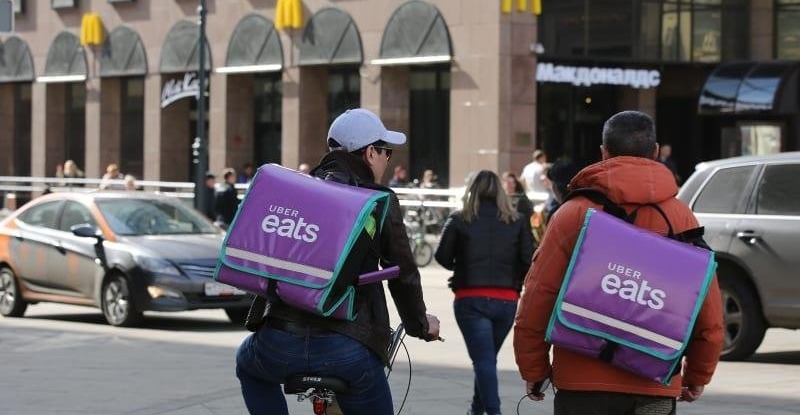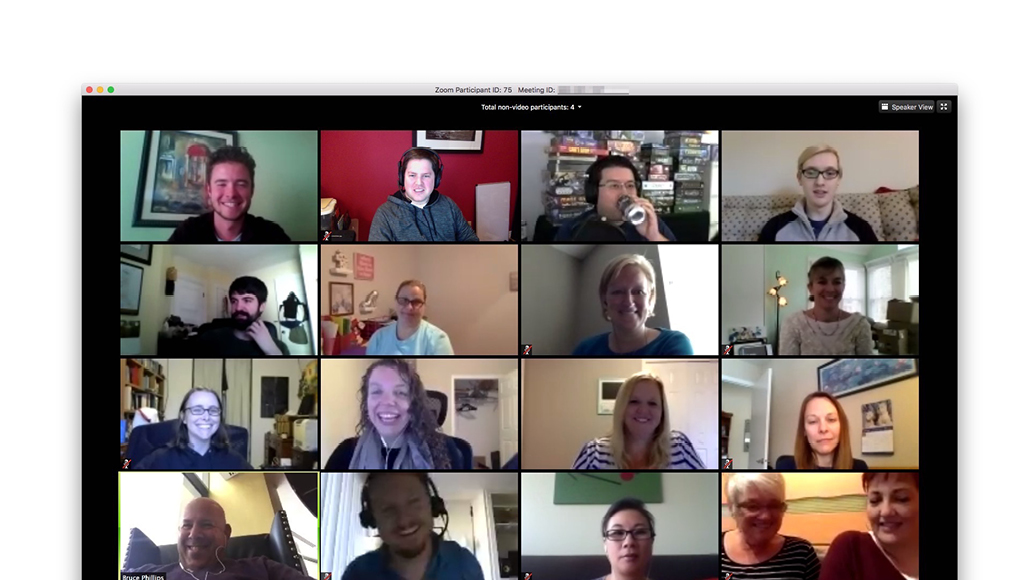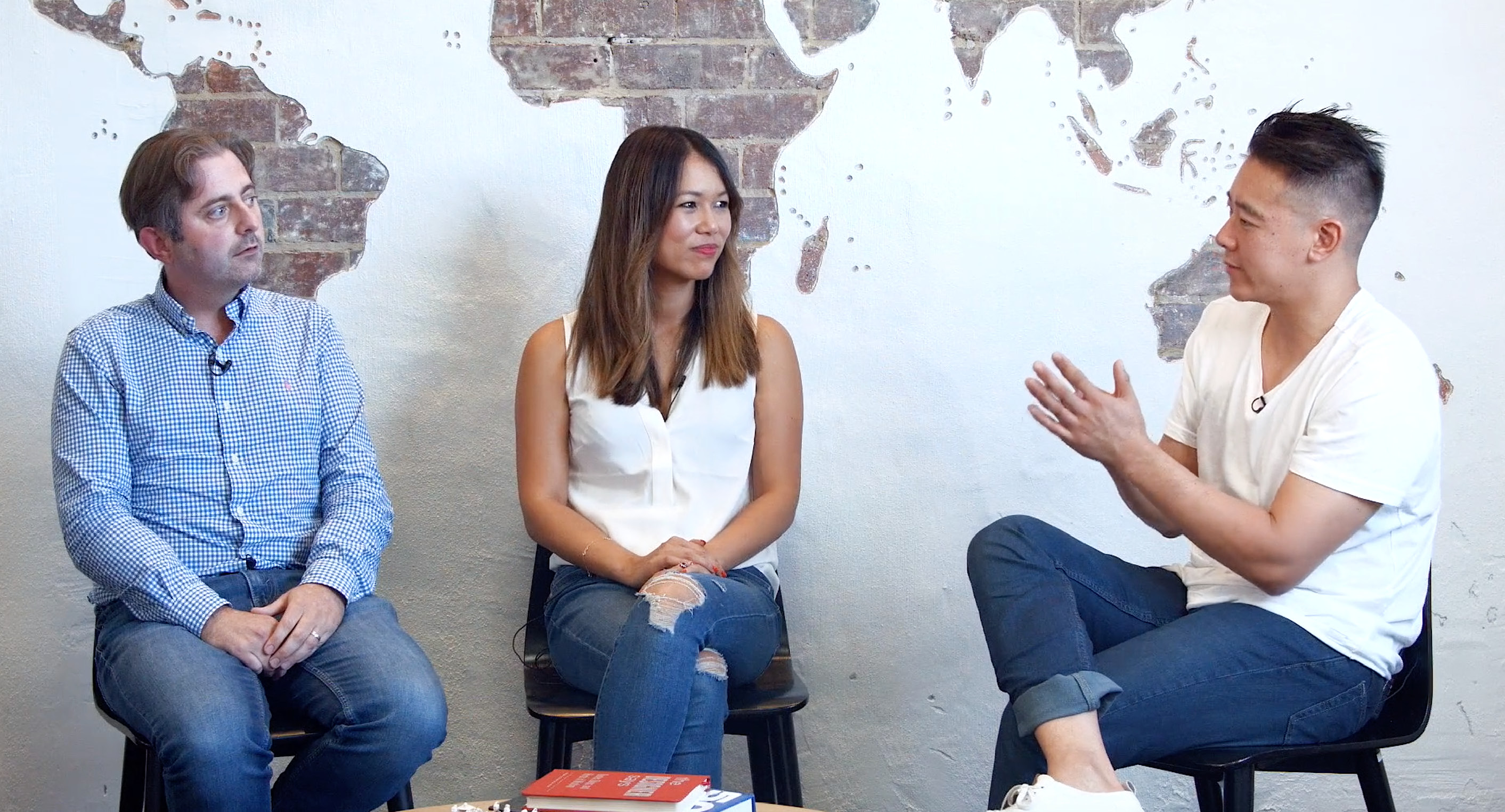TONY: What does the future of work mean to you?
RUBY: The future of work basically comes down to freedom of choice and flexibility. It’s actually this whole new unlocked generation where people should feel free to set up their working lives to suit them. I think it rolls into the gig economy, being able to represent different employer brands, and it being actually quite normal. It gives us, as individuals, freedom of choice in how we want to work and who we want to work for.
BEN: Flexibility is key, especially when you’re working with businesses where there isn’t an element of tech-savviness. We’re trying to attract people to an organisation who are excited about working in technology.
Most of them, these days, will have those side hustles. They will have things going on that aren’t their core day-to-day line of work. If you try and stop that creativity, you’re not going to attract the right kind of business to your people. We want people who are excited and want to develop new stuff. If you’re not willing to accept that they will have other things on the go, then they won’t join your business.
TONY: What is the role of technology in the future of work?
BEN: For me, technology – like automation and AI – especially in the context of human resources and culture is all about workflow performance improvement. Regardless of what we do and how we do it, there will always have to be a heavy human influence on decision making, cultural fit, and trying to attract people to your business.
We are there to be the components of organisation and lead from the front. You can’t do that with a bot. What I see the future of work being, for us, is around efficiency. Being able to drive efficiency through what we do and how we do it, in order to enable us to be more representative of our businesses. To take away the more repetitive, more mundane stuff we have to do in HR, and free us up for more of the fun stuff that will utilise our skills for people and culture.
RUBY: For me, I think I am in this world where I get to play with a lot of this HR tech that comes out. Most certainly, it always comes back to efficiency, and giving me, as Head of Talent, more time to spend on the things I love doing - connecting with the business, understanding future people strategy, and really starting to grow the people within.
The tech that I have loved the most is around sourcing. I think essentially for us in this real space of war on talent - we are all, somewhat in competition with one another to find app developers and software engineers in our industries as a whole. What really helps those individuals find us is often just the channels and we just can’t be on all the different channels that are out there at any one point in time. So when we can automate that, the possibilities become really exciting. I’m really excited about what’s going to be rolled out in the next couple of years as well. Just really being able to pinpoint and identify that exact person, that exact ‘unicorn’ every business is looking for – and using companies like Weploy is incredible.
TONY: One of the things that people always talk about when they hear ‘automation’ is that ‘it’s going to take away my job’. The HR tech sector globally is growing and, often, when I speak to HR leaders they are hesitant to use HR tech because they think ‘what part of my job is going to be removed or taken over?’ What are your thoughts on this? Should they be scared?
RUBY: Often it’s from a time-scarcity point of view, where we don’t have time to trial product as deeply as we should in order to recommend to the business that we should adopt it. I think if there’s anything fear-based it comes from a requirement to put your name behind something, get buy-in from the business, only for it to maybe not work because we haven’t been able to trial it properly. I definitely don’t think HR teams push tech away, I think it’s more that we don’t allow ourselves the time or the luxury of fully embracing it and trialling it as well as we should.
BEN: I think HR teams are becoming leaner and leaner as technology helps us achieve what we need to do, which ultimately does mean that teams are fairly time poor. I cannot see why HR leadership get scared around technology. I think all it’s ever going to do is support you in terms of doing better, interesting things. It’s not only about getting jobs out there; it’s about improving your employee value proposition (EVP) and showing off the attributes of your business. It’s fantastic! Ultimately, if the business doesn’t do those things, there’s a reason why.
I think, moving forward, there will be more uptake in technology in supporting the growth of businesses. But by the same token, it’s not going to be for the sake of uptaking it - there will need to be an absolute data-verifiable reason as to why you are using something. That comes back to, whether it be EVP, time to hire, cost to hire – those things need to be ticked off for you to be able to justify the trialling and usage of those systems.
TONY: People build businesses, not products. But more often than not, HR does not get a seat at the leadership table. Do you think technology will help bridge that gap? Or with technology, where do you see the role of HR in the future of work?
BEN: I think at the moment we’re at the point of leveraging technology to drive product and strategy. I long for the day that we have that seat at the table, which is relevant, and true, and pure. But for now what we have to do is make use of what technology is out there to actually leverage our knowledge and skillsets. There is also the argument about talent acquisition. I think that’s the next big question in the future: does talent acquisition actually sit in HR? Or is it a standalone strategic group that should be engaging with all the different parts of the business to really drive an overarching strategy moving forward?
TONY: By 2020, 40% of the workforce is predicted to be contingent. But even now, when it comes to people strategy, so many HR leaders, when I speak to them, think about the traditional full time worker. Where do you see technology bridging that gap?
RUBY: Workforces are changing. I’ve worked for lots of large companies and traditionally in the talent acquisition space, even in HR, we would push the contingent over to procurement. It’s this big beast that we really didn’t know how to deal with. Legally, there are a lot of contracts to deal with and time-bound employment technicalities. It’s almost easier for HR teams to deal with permanent staff because they’re regarded as the influence culture and engagement.
The reality is as you’re recruiting 40% of your workforce you are going to have to change your entire people strategy. As I started to see more executives leave large business, often the conversation would turn not to finding new full time hires to fill those roles, but ‘will you come back and contract with us?’ They are at an exceptional, pivotal point in their own career but they are also able to give back to us, as employers, as well.
So how does technology play into that? I feel massively around keeping your alumni engaged and keeping those community-building aspects really strong. Your applicant tracking system (ATS) should be able to keep track of where your contingent workforce is at any point in time. To be able to say, ‘Hey, you left us six months ago, has your contract finished? Would you like to come back and work with us? We have a nine-month gig happening.’
Coming back to what you say Tony, ‘You work to live, not live to work’. In technology, I came across a lot of awesome candidates and employees who just wanted to work for nine months and do a mini-retirement for three months on a beach somewhere for their own happiness and well-being. Is there technology out there which can tell us, as employers, when they come back and are on the market?
TONY: That’s where Weploy comes in.
RUBY: Exactly! This is an actual need that the HR market have and need to know more about and start adopting as we very quickly approach 2020 and beyond.
Learn more about how Weploy works with clients and candidates and why we’re the part of the new school of recruitment.

What is the “Gig Economy” anyway?
Defined as a “Labour market characterised by the prevalence of short-term contracts or freelance work as opposed to permanent jobs” - Gig work is not a new concept. The hype around the Gig Economy, however, has risen in Australia of late, largely down to the widespread adoption of digital platforms like Uber, Deliveroo, and Airtasker. Whilst short term “gigs” and freelance jobs have been performed for years, these apps have facilitated the ease with which this type of temporary employment can be arranged- for everything from transport and food delivery, to professional services work and even care services.

A Gartner survey reveals 88% of organisations have encouraged or required employees to work from home due to Coronavirus, enforcing a global ‘Work from Home experiment’ which none of us saw coming and nobody had planned for.

TONY: Can you tell us a bit about yourself, your employer branding business Digital Affair, and how you got where you are today Tim?
TIM: Part of it is timing. Employer branding has become extremely popular and organisations have started to understand how important it is, both to engage their people but also to connect with customers. It’s not just isolated to the employer space. Employer branding can have a big impact on consumer brands too.
Streamline your hiring
Business support staff with no hidden fees. Start hiring anytime.
